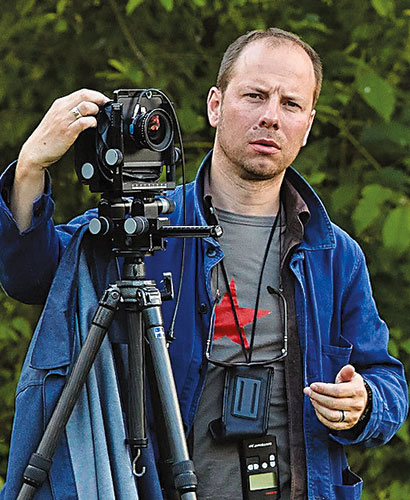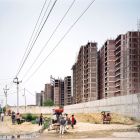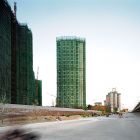Patrick Tourneboeuf
Next City
Imagine a tale of two cities, separated by almost 4,000 kilometres. Welcome to the capitals of India and China, the world’s two most populated countries, with population levels hovering around the 1.5 billion mark. Together, they account for close to 40% of the world’s population. Beijing and New Delhi emerged within two very different geographical, social, cultural and political contexts. The first has roots dating back to the 7th century BC, while the second was developed by the British in the early 20th century. Other than their booming populations, China and India have nothing in common. Their ancient pasts are patchworks of highly specific twists and turns that make up the essence of their identities, the complex and subtle DNA patterns of these two diametrically opposed cultures.
And yet… On the outskirts of these two metropolises, similar building sites thrive. Sprawling concrete jungles with the same structure, rules and perspectives. Homogeneous, innumerable, and tragically piled one on top of the other, these sites fulfil a single need: to house as many poor people as possible. As globalisation continues its steady march, might there be a worldwide approach we can take to create an urban utopia that would solve the ’universal’ problem of providing accommodation on a mass scale? Born in Paris in 1966, French photographer and Tendance Floue collective member Patrick Tourneboeuf examined the issue through the lens of his view camera. Drawing on the approach that has defined his style since the mid-1990s (when he began investigating urban spaces in his series), he questions spatial identity with a concision based on radical framing techniques.
When looking at these images without reading the captions it’s difficult for the viewer to get their bearings. Where are we exactly? In Beijing? New Delhi? Detroit? Luanda? Rio de Janeiro? Or in some random French or European suburb? Impossible to say. Everything here is flat, familiar, banal. Vulgar, in the true sense of the term. Behind these homogenous architectural landscapes, the outline of cultural identity on its way out can be glimpsed…
INFO POINT
Tourist Information Baden
Brusattiplatz 3, 2500 Baden bei Wien
Open during the photo festival:
Monday – Friday: 10.00 – 16.00 hrs
Saturday: 13.00 – 17.00 hrs (June – August)
Saturday: 13.30 – 16.00 hrs (September – October)
Closed on Sundays and public holidays!
Tel: +43 (0) 2252 86800 600
info@baden.at
Festivalbüro La Gacilly-Baden Photo
Tel: +43 (0) 2252 42269
festival@lagacilly-baden.photo



